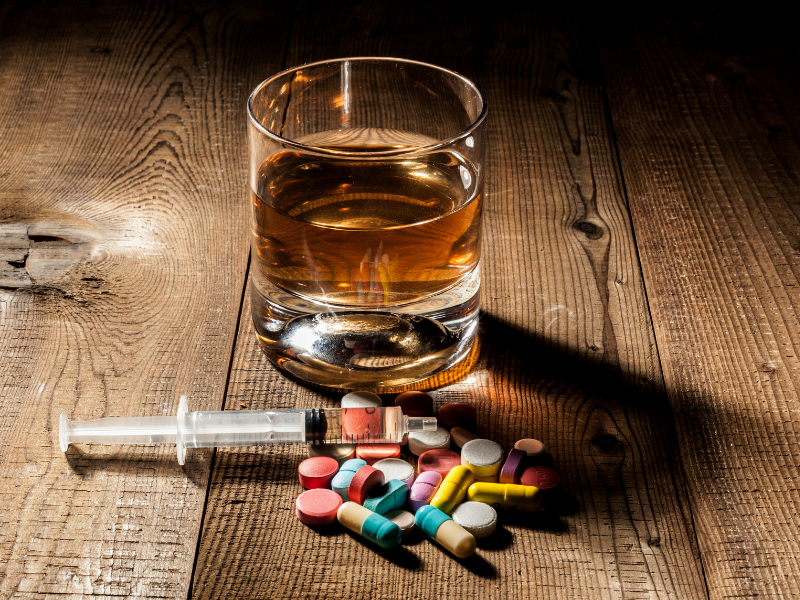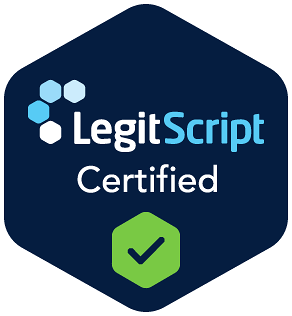By Gina Rainville, RN, BSN, Clinical Shift Supervisor, The Recovery and Wellness Unit, Valley Health System
Substance use disorder is the uncontrolled use of alcohol, recreational drugs, tobacco, or prescription medication. People with substance use disorder experience an intense focus – an addiction – that can lead to significant impairments in daily functioning.
 Substance use disorder can start with drinking alcohol, using a recreational drug, or taking a prescription medication to induce sleep, quell anxiety, or relieve pain from an injury, dental procedure, or surgery. Individuals may also use substances as a form of self-medication to ease mental health issues such as anxiety, depression, and post-traumatic stress disorder (PTSD). Every substance causes different long-term effects, but with continued use, a person may develop a tolerance and need larger doses of the substance to get high or feel its pleasurable result.
Substance use disorder can start with drinking alcohol, using a recreational drug, or taking a prescription medication to induce sleep, quell anxiety, or relieve pain from an injury, dental procedure, or surgery. Individuals may also use substances as a form of self-medication to ease mental health issues such as anxiety, depression, and post-traumatic stress disorder (PTSD). Every substance causes different long-term effects, but with continued use, a person may develop a tolerance and need larger doses of the substance to get high or feel its pleasurable result.
With time, the substance changes how a person’s brain functions; users often experience distorted thinking and behaviors. Symptoms of substance dependence include intense cravings, changes in personality, abnormal movements and impulses, and loss of control evidenced by the inability to reduce or stop despite wanting to and despite harm. Substance dependence often leads to neglecting responsibilities and regulations such as driving when intoxicated, spending money the person doesn’t have, and stealing to purchase the substance. Experiencing physical withdrawal symptoms when not using the substance is also common.
Signs of Substance Abuse
Men are one and one-half times more likely than women to have a substance use disorder, but it can affect people of any age, sex, or economic status. The Partnership to End Drug Addiction cautions family and friends to watch for these warning signs:
- Changes in relationships
- Loss of inhibitions
- Mood changes or emotional instability
- Periods of sleeplessness and/or increased activity
- Hostile, angry, uncooperative, or secretive behavior
- Changes in speech, appearance, or hygiene
- Loss of interest in favorite activities, hobbies, or sports
- Missing work or school
- Complaints from co-workers, teachers, and friends
Risk Factors
People with substance use in the family are 50 percent at higher risk to develop an addiction than those who don’t. This risk is determined by genetics, however, there are other factors. To give your children a head start against drug addiction, discuss with them the following risk factors as soon as they are about 10 years old:
- Any personal and/or family history of substance use and addiction
- Peer pressure
- Difficult family situations
- A personal mental health disorder (depression, attention-deficit/hyperactivity disorder, PTSD, anxiety)
- Early substance use
- Taking a highly addictive drug (stimulants, cocaine, opioid painkillers, or a drug that is smoked or injected)
Seeking Emergency Help
Call 911 if someone you know may have overdosed, shows changes in consciousness, or is experiencing trouble breathing, seizures, chest pain or pressure, or another physical or psychological reaction to the drug. A nose spray containing a medication called naloxone can reverse an overdose of opioids until emergency personnel arrive. Naloxone is available without a prescription, and it is simple for any non-medical person to learn how to use. Naloxone is covered by Medicare, Medicaid, and most private insurance companies.
Entering a Withdrawal Management Program
To treat a person with an addiction, Valley Health System’s inpatient Recovery and Wellness Unit in Ridgewood offers comprehensive, compassionate withdrawal management (detoxification) services for alcohol, opioid, and benzodiazepine use disorders. Withdrawal management helps individuals navigate the acute withdrawal phase of treatment, while also addressing any medical or psychological complications that may arise. Withdrawal management is an essential first step in the journey toward recovery from substance use or addiction.
Our patients are met with empathy, holistic modalities, and a team who wants to lock arms with them and pave the way for a new tomorrow. Everyone deserves to be listened to, to have a hand to hold, and to possess the resources for change.
For more information, call 201-612-4949.
If you are in crisis, text or call 988. To learn more about addiction and its signs and symptoms, visit: recoveryanswers.org/resource/signs-symptoms


